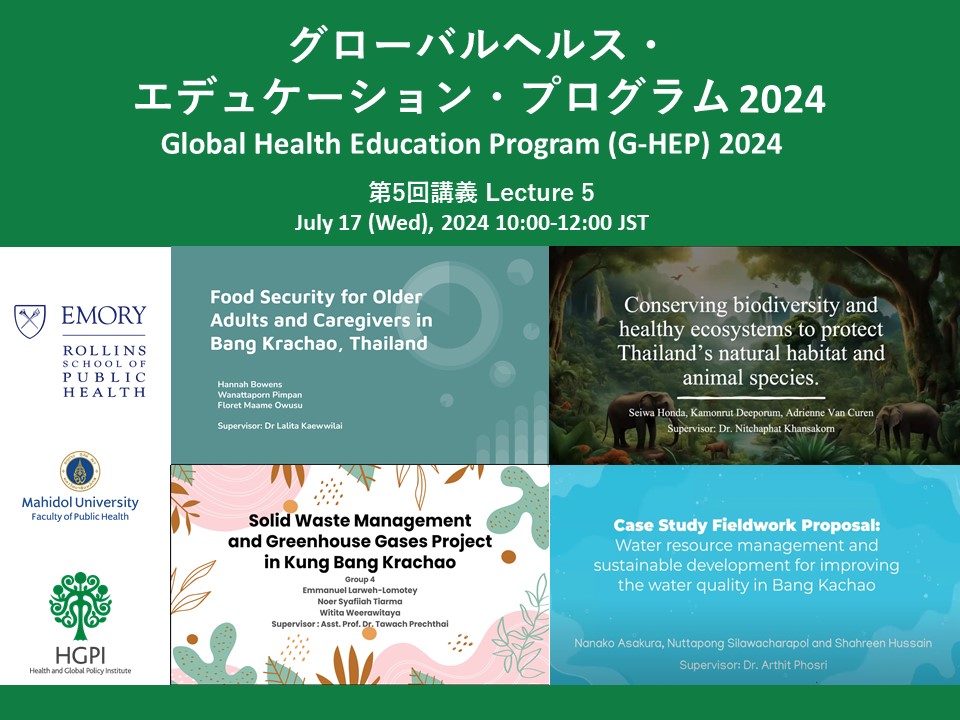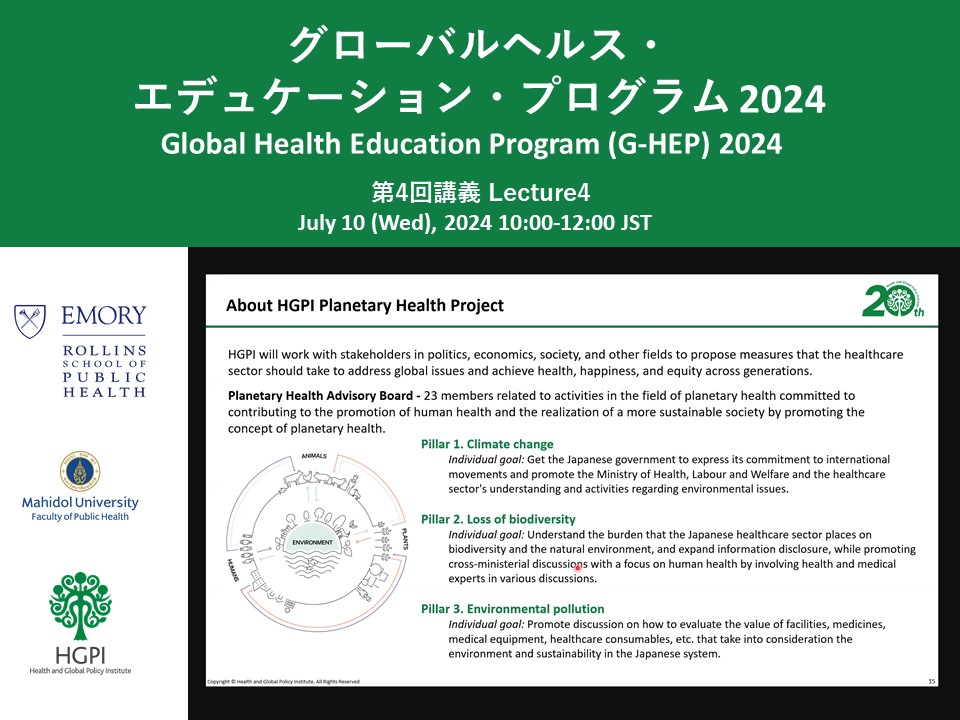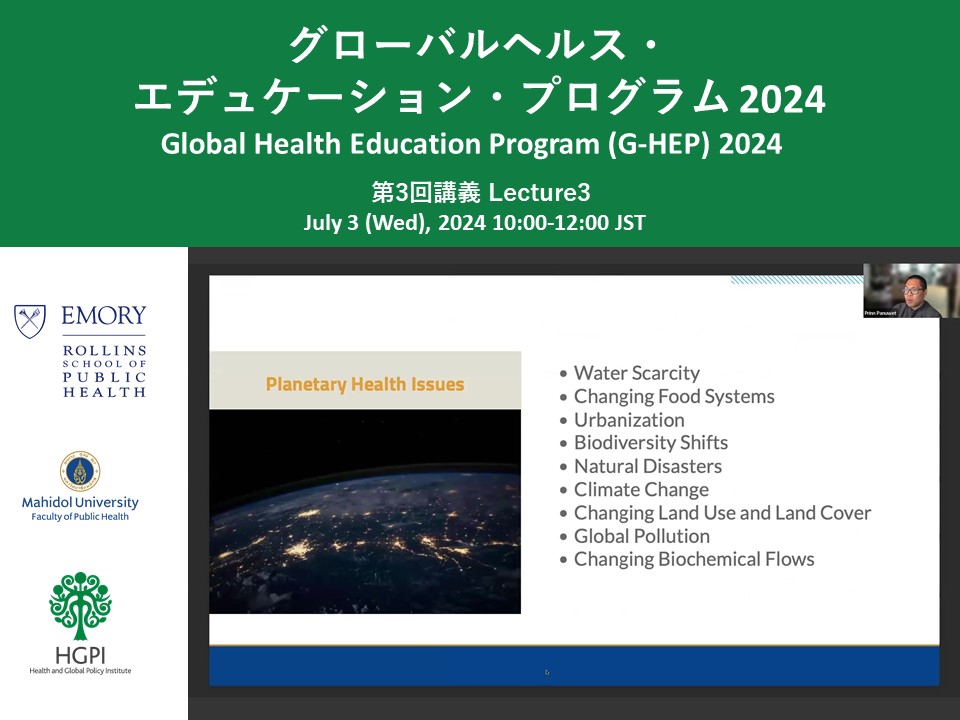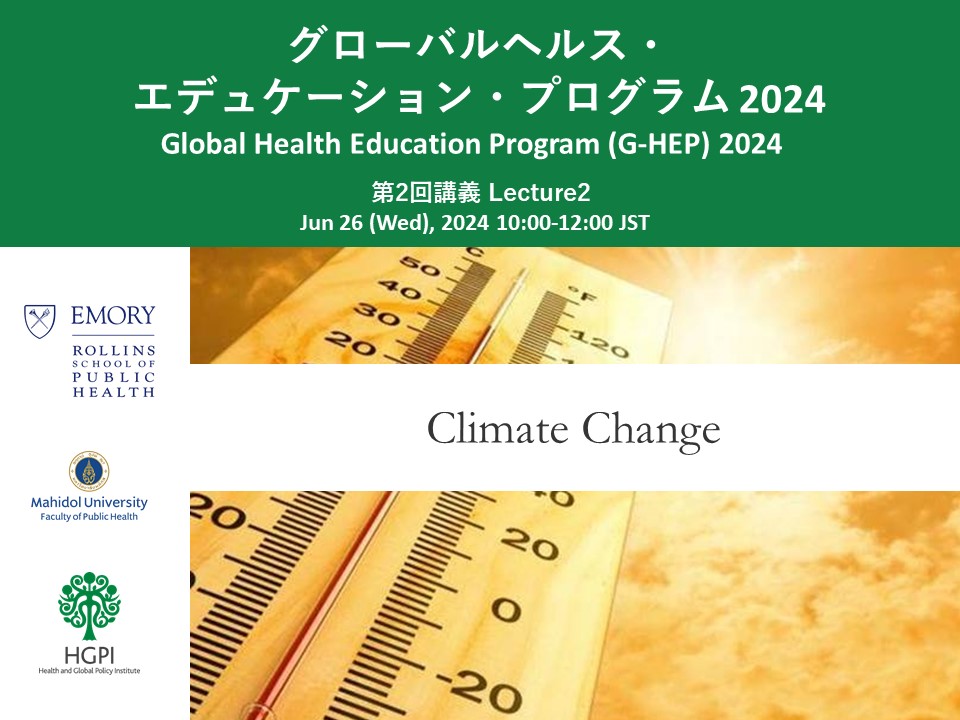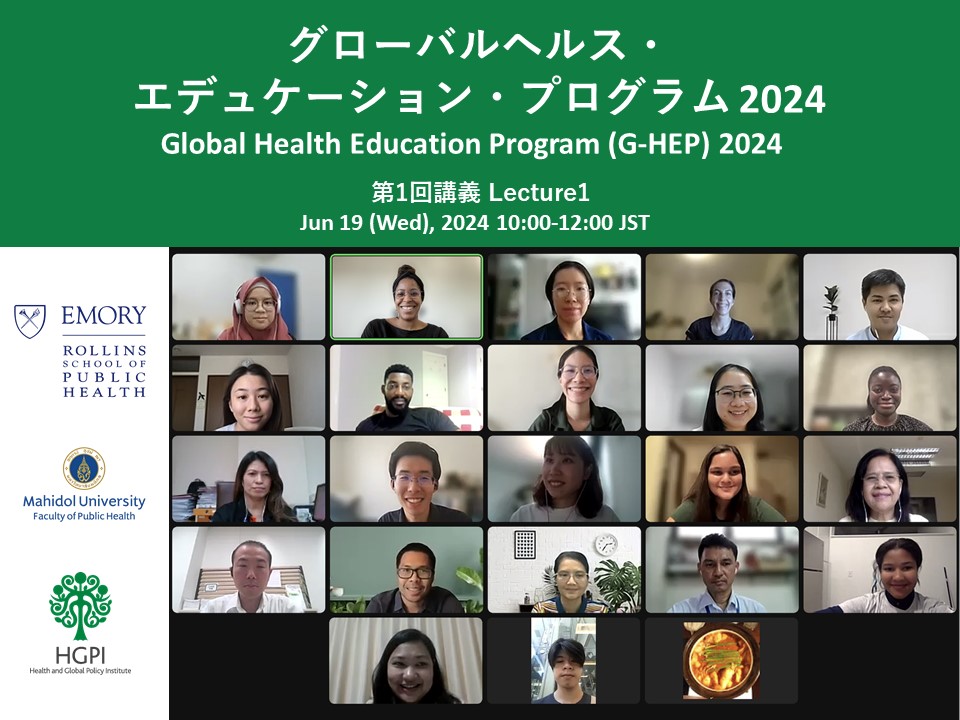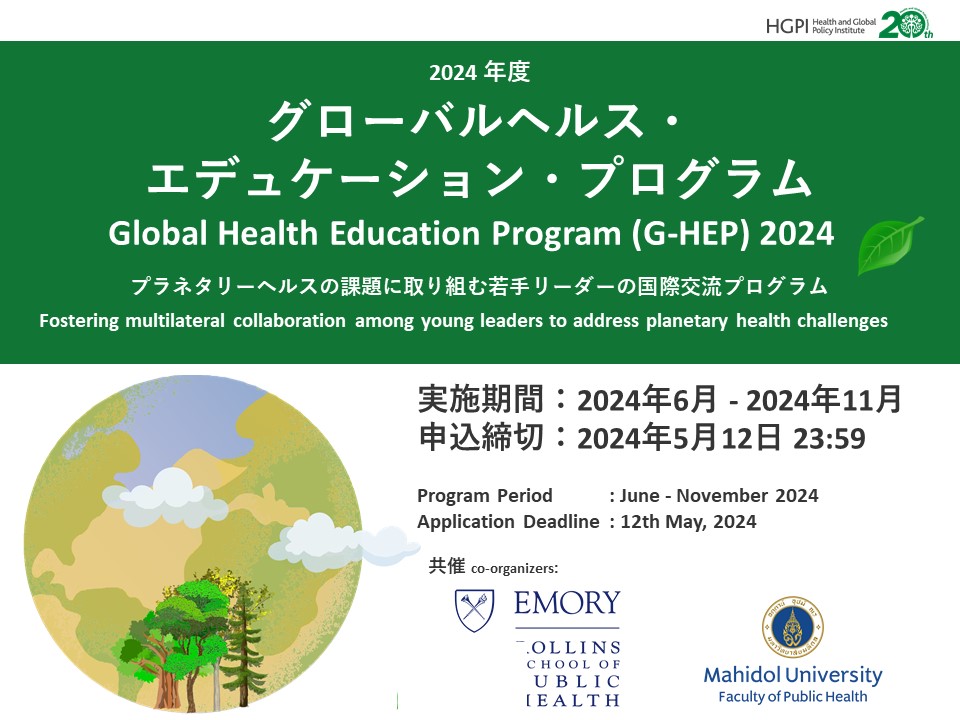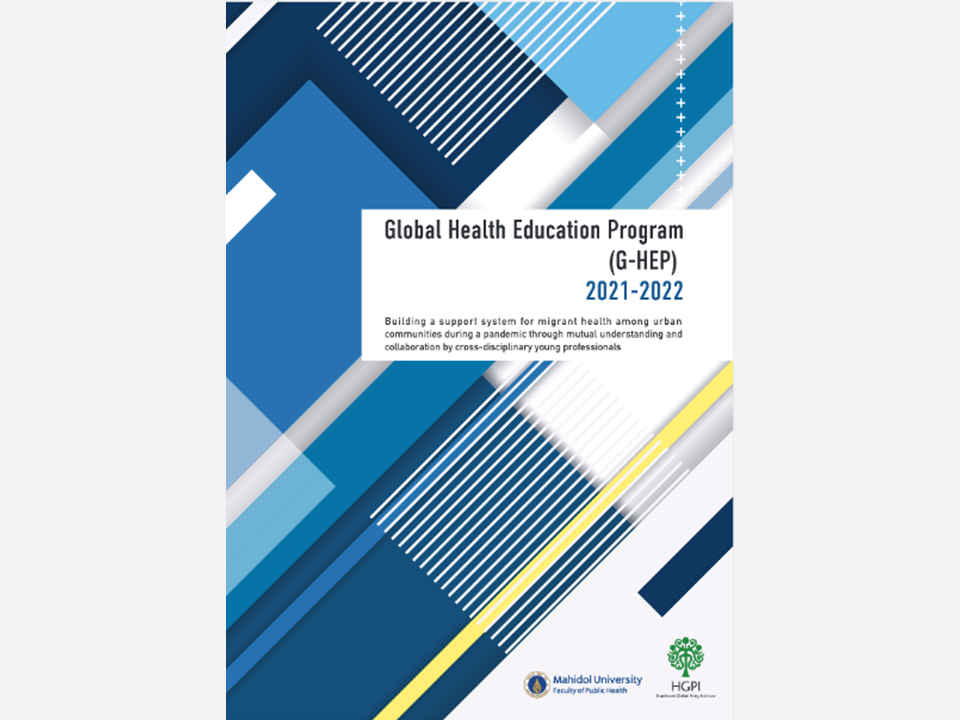[Event Report] Global Health Education Program (G-HEP) 2024 – Fieldwork in Bang Krachao, Thailand (August 5 – August 9, 2024)
date : 9/24/2024
Tags: Global Health, Global Health Human Resources Development
![[Event Report] Global Health Education Program (G-HEP) 2024 – Fieldwork in Bang Krachao, Thailand (August 5 – August 9, 2024)](https://hgpi.org/en/wp-content/uploads/sites/2/HGPI_20240809_eyecatch.jpg)
The Global Health Education Program (G-HEP), co-hosted by Health and Global Policy Institute, Emory University Rollins School of Public Health, and Mahidol University Faculty of Public Health, conducted a week-long fieldwork activity in Bang Kachao, Thailand from August 5th to August 9th. Twelve participants of the G-HEP coming from the United States, Thailand, and Japan all met up in Thailand for a week of fieldwork activities.
This year’s program theme, “Fostering multilateral collaboration among young leaders to address planetary health challenges,” the program involves participants from five countries and spans approximately six months, featuring online lectures, group work on case studies, and fieldwork in Thailand and Japan.
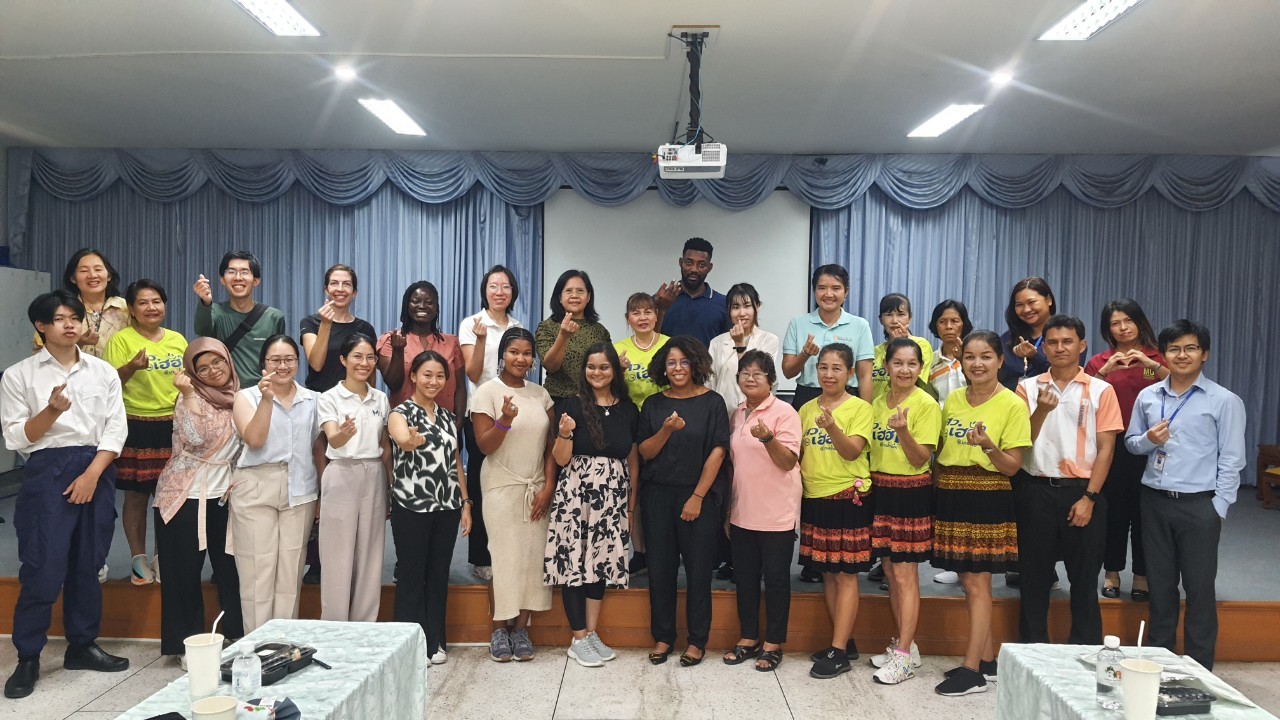
From the start of the program participants were placed into one of four case study groups:
- Food security under a changing climate: Exploring the adaptation strategies for Thai older adults and caregivers in sub-urban communities
- Conserving biodiversity and healthy ecosystems to protect Thailand’s natural habitat and animal species
- Water resource management and sustainable development for improving the water quality in Samut Prakan
- Tackling Thailand’s mismanaged solid and plastic waste problem
Over the past two months, the groups worked with their supervisors from Mahidol University to do background research into the issues of each case, formulate their research questions, and prepare their methods for data collection in the field.
The fieldwork was set in Bang Krachao, Samut Prakan Province, along the Chao Phraya River just across from Bangkok. The area of Bang Krachao is called the “Green Lung” and is known for its nature and sustainable activities. The main form of transportation within the area is by bicycle on raised paths above the water. This would be the method of transportation for the group during the fieldwork.
Day 1 in the field began with an opening ceremony at the local municipality office in Bang Krachao where government officials welcomed us. We then learned about the various initiatives supported in the area, followed by a tour in the afternoon of several sites where these sustainability projects are actively taking place.
First, we visited a water management facility to learn about how the water in the area is managed for agriculture. One of the challenges that many farmers face is finding ways to desalinate the water that comes in from the river so that it does not affect the crops. Various techniques are used, such as mixing groundwater or fresh rainwater with water from the river.
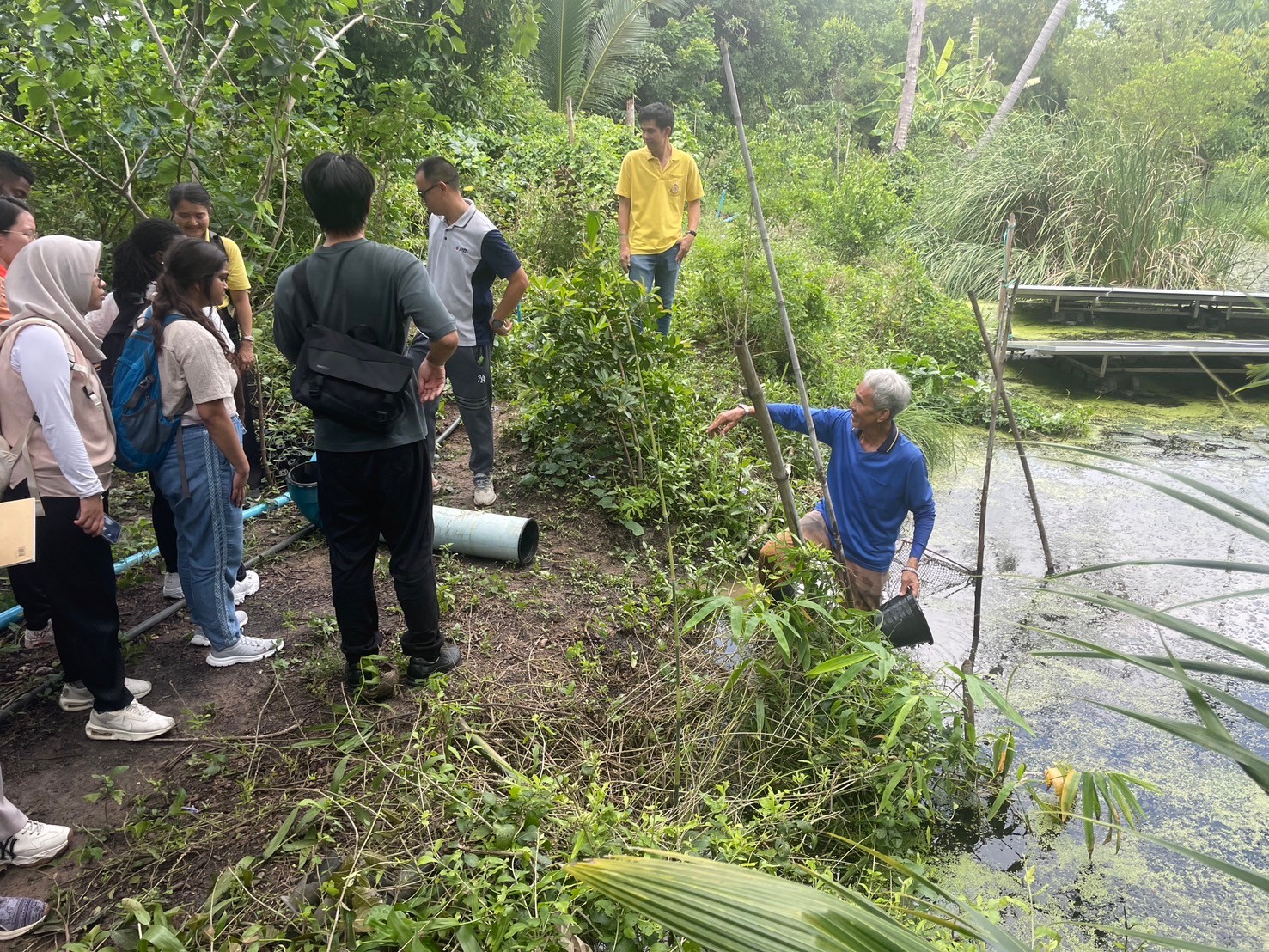
Then, we visited a plastics recycling center located on the grounds of the Wat Chak Daeng temple. At this center they partner with around 70% of residents to collect plastics for recycling and reusing. The center takes the plastics to create new products such as hangers, blankets, and robes worn by the temple monks. They also collect solid food waste for composting to turn into fertilizer.
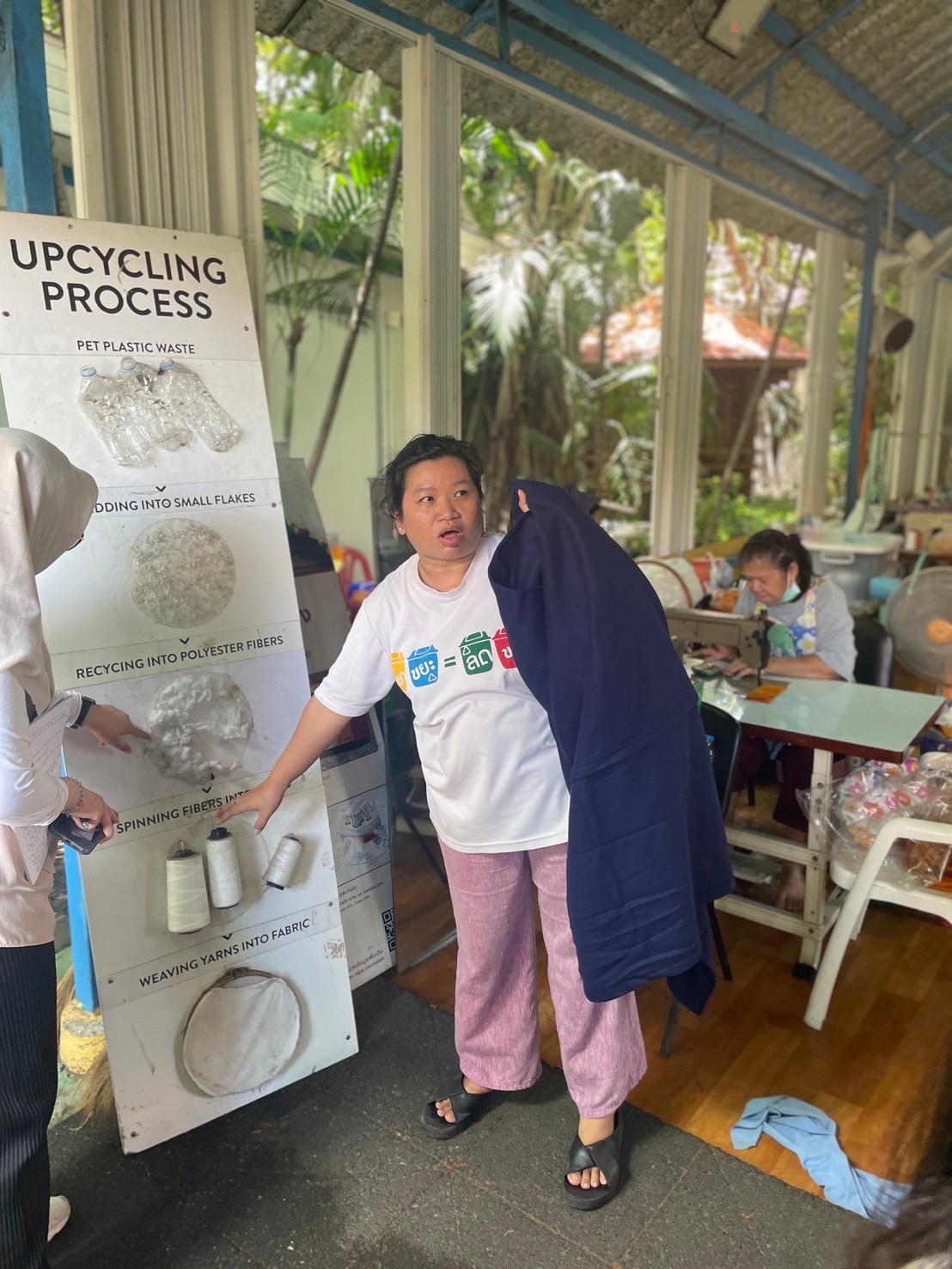
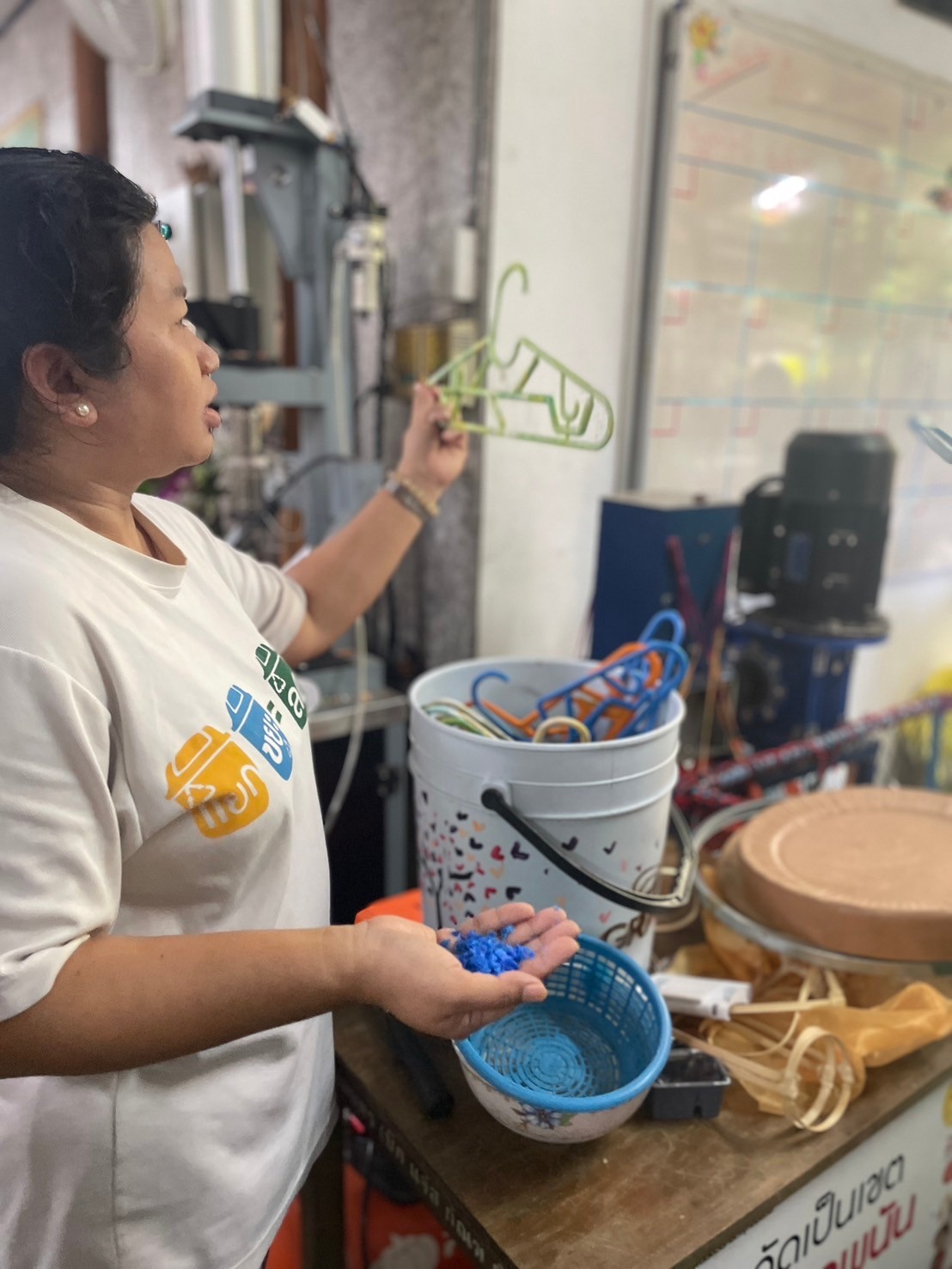
Last, we visited the 80th Anniversary Celebration Garden, a protected park concentrating on conservation activities. They lead many educational activities to raise awareness about biodiversity loss and trash polluting the area from the river.
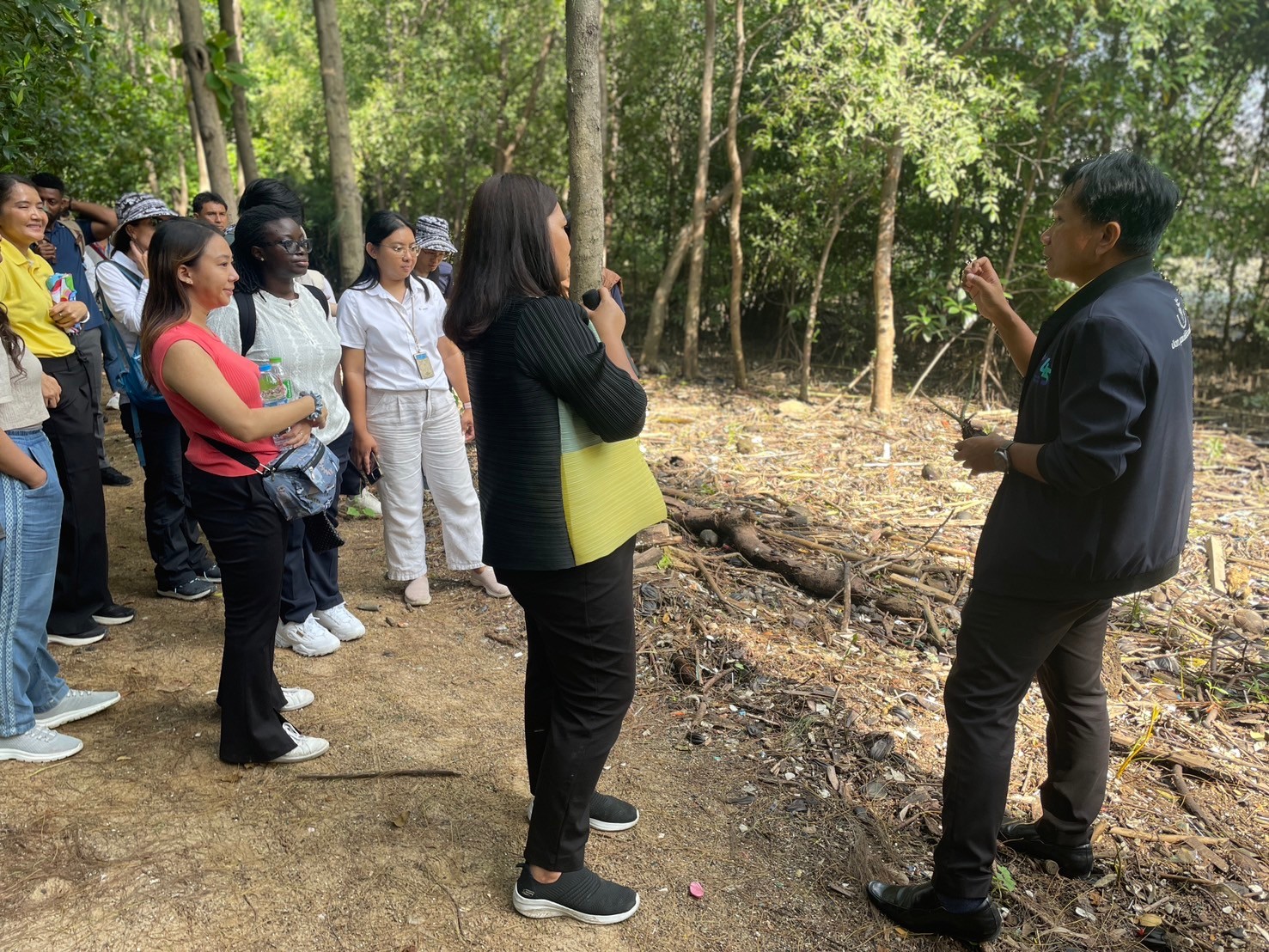
On day 2, the participants met with local community workers who, through interpreters, were able to ask questions and learn more about their target population for the case studies. Participants also worked in groups on this day to discuss and finalize their plan for data collection with the community workers and interpreters.
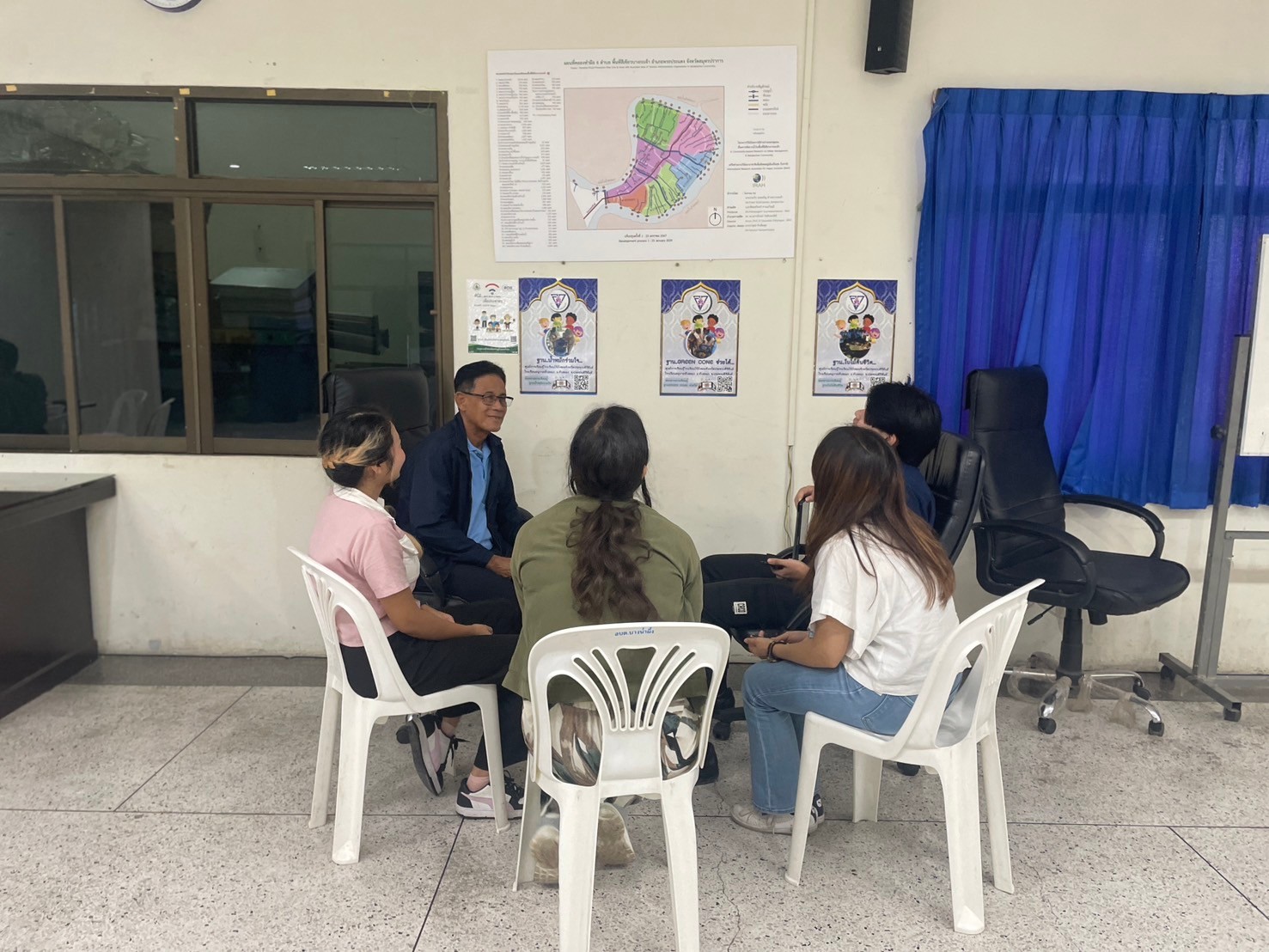
In the afternoon, the participants were able to get started right away with their data collection, which consisted primarily of in-depth interviews with key stakeholders, including residents in the community.
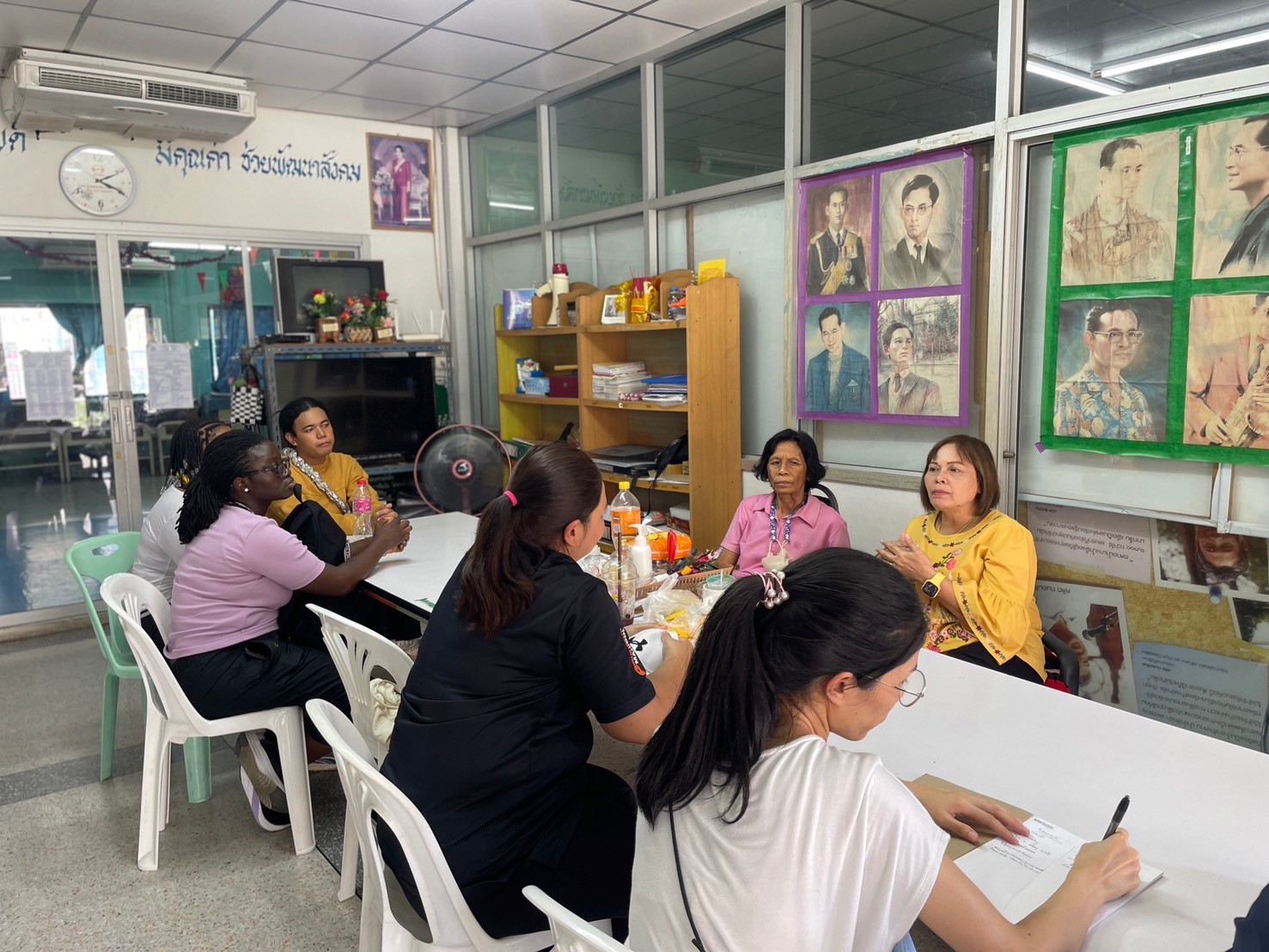
On days 3 and 4, the participants continued to collect data in groups around the community on their bicycles during the day and in the evening, working together to reflect and analyze their findings.
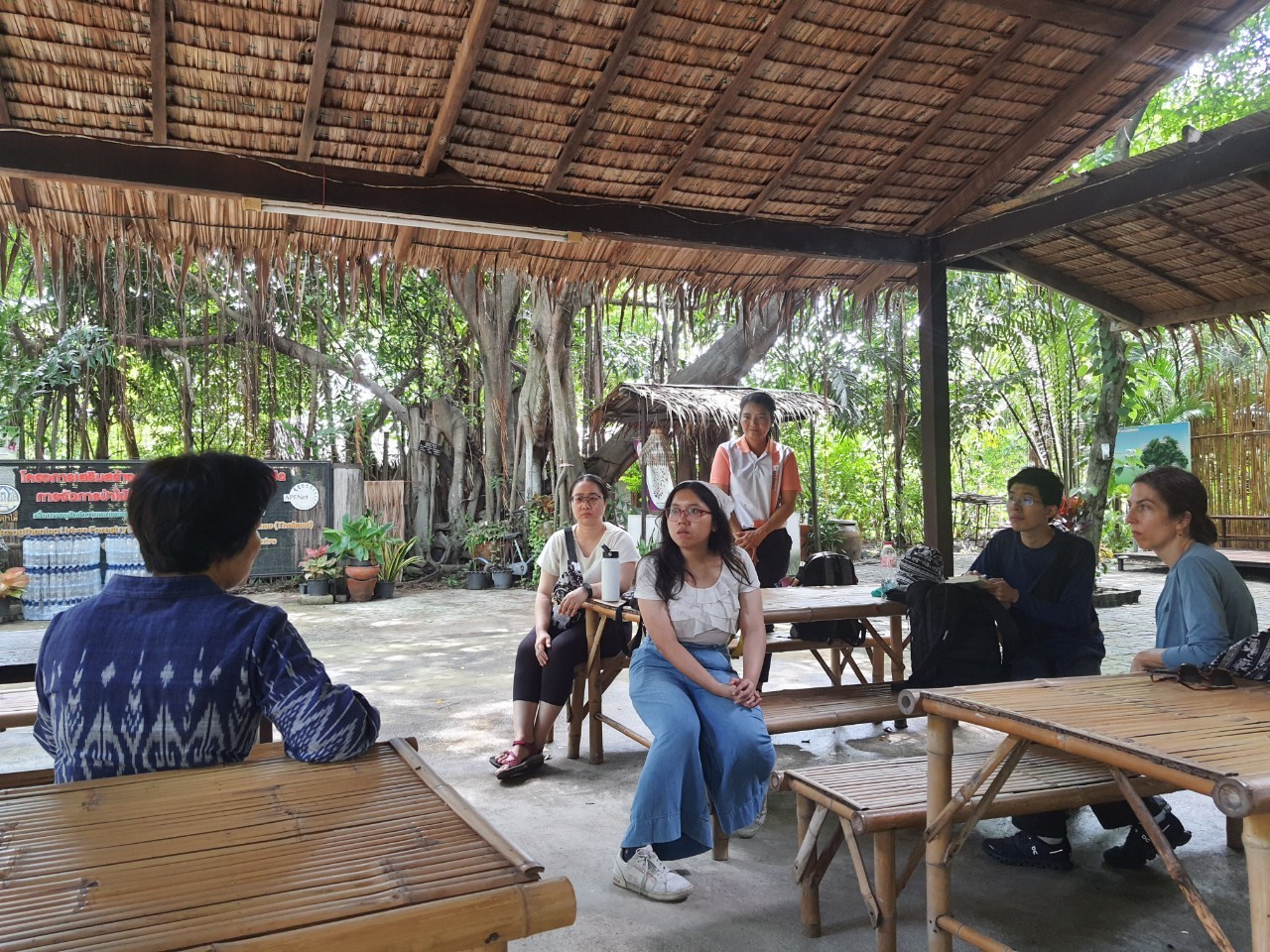
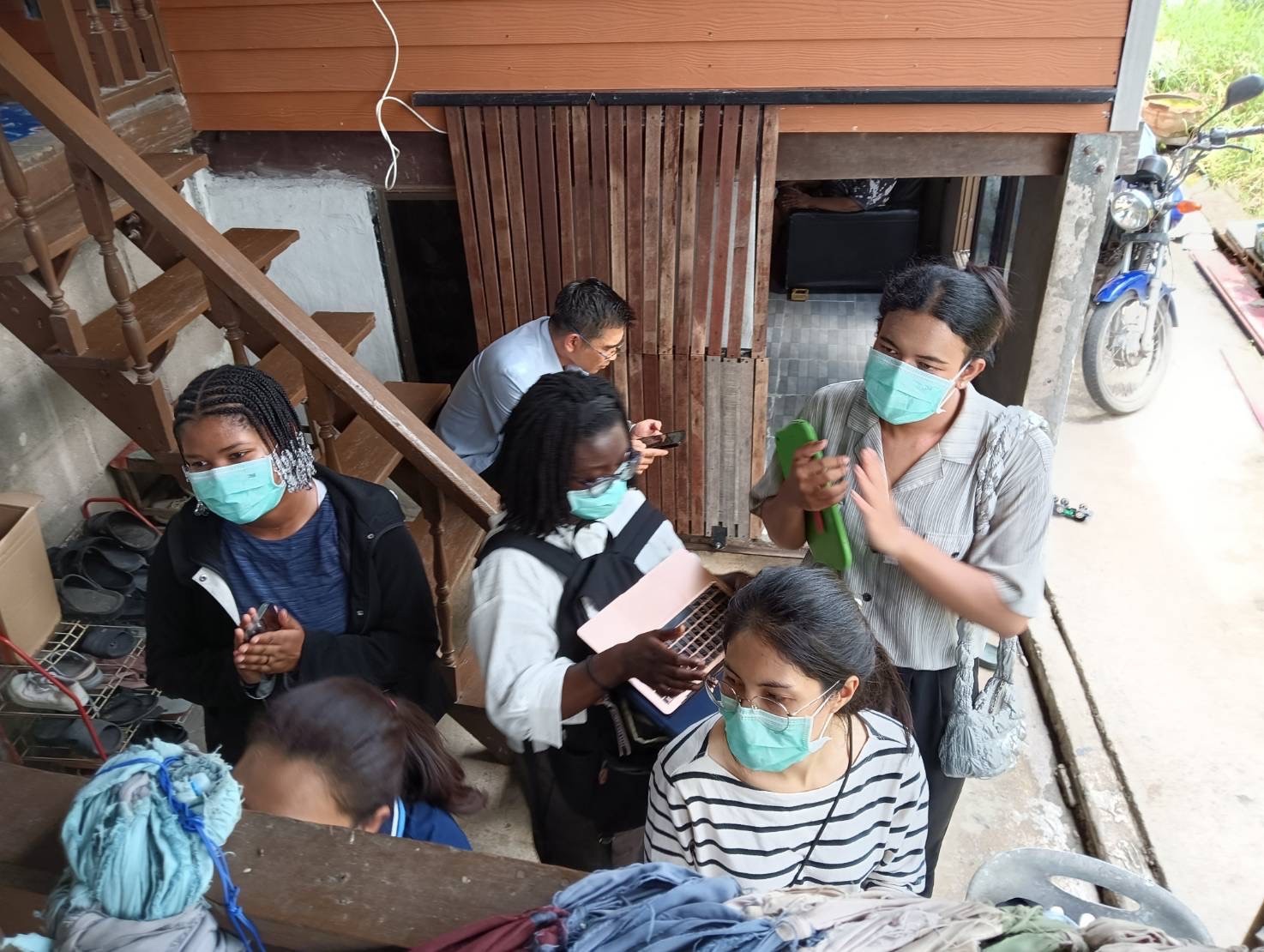
On day 5, the final day, each group presented what they experienced during the week. In their presentations, which were attended by government officials from the municipality office and community workers, the groups shared details about the key stakeholders they interviewed, the issues related to each research area, the data they were able to collect with a preliminary analysis, and some of the initial recommendations they have for the community. The recommendations were well received by the government officials and many questions were asked to the participants with great interest. Following the presentations, we closed the program with a festive traditional Thai dance performance, which participants enthusiastically joined in on.
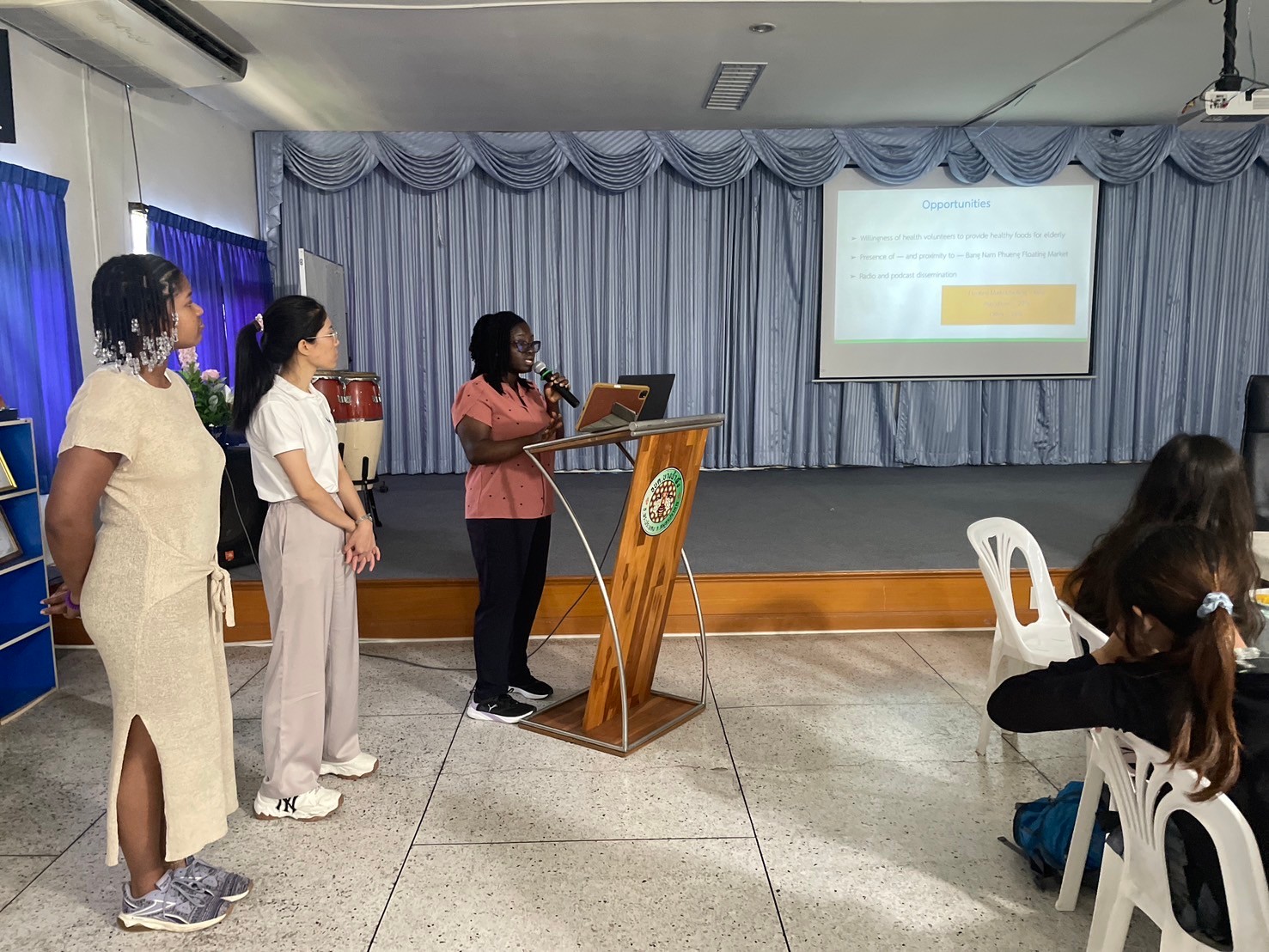
The effects of climate change impact every section of the world, with some areas feeling the impact greater than others. Participants were able to see first-hand how the people of Bang Krachao are impacted in many ways that are not experienced in the United States or Japan.
Participants will return to their homes to continue the group work to finalize their case study work by creating a policy proposal report which will be presented in November in Japan.
■ About Global Health Education Program (G-HEP)
The “Global Health Education Program (G-HEP)” vision is to establish a global community of young leaders that can work together to push global health agendas forward and to conduct human resources training and development for the future. The partnership with the Mahidol University Faculty of Public Health which began in 2018 extended the program’s boundaries through interactions among young generations not only from Japan but from the ASEAN region as well. This year’s program welcomes Emory University Rollins School of Public Health bringing a U.S. perspective to the program along with participants of diverse professions and backgrounds. Participants in G-HEP can work together to deepen mutual understanding and cooperation for solving complex global public health issues.
■ About The Rollins School of Public Health at Emory University
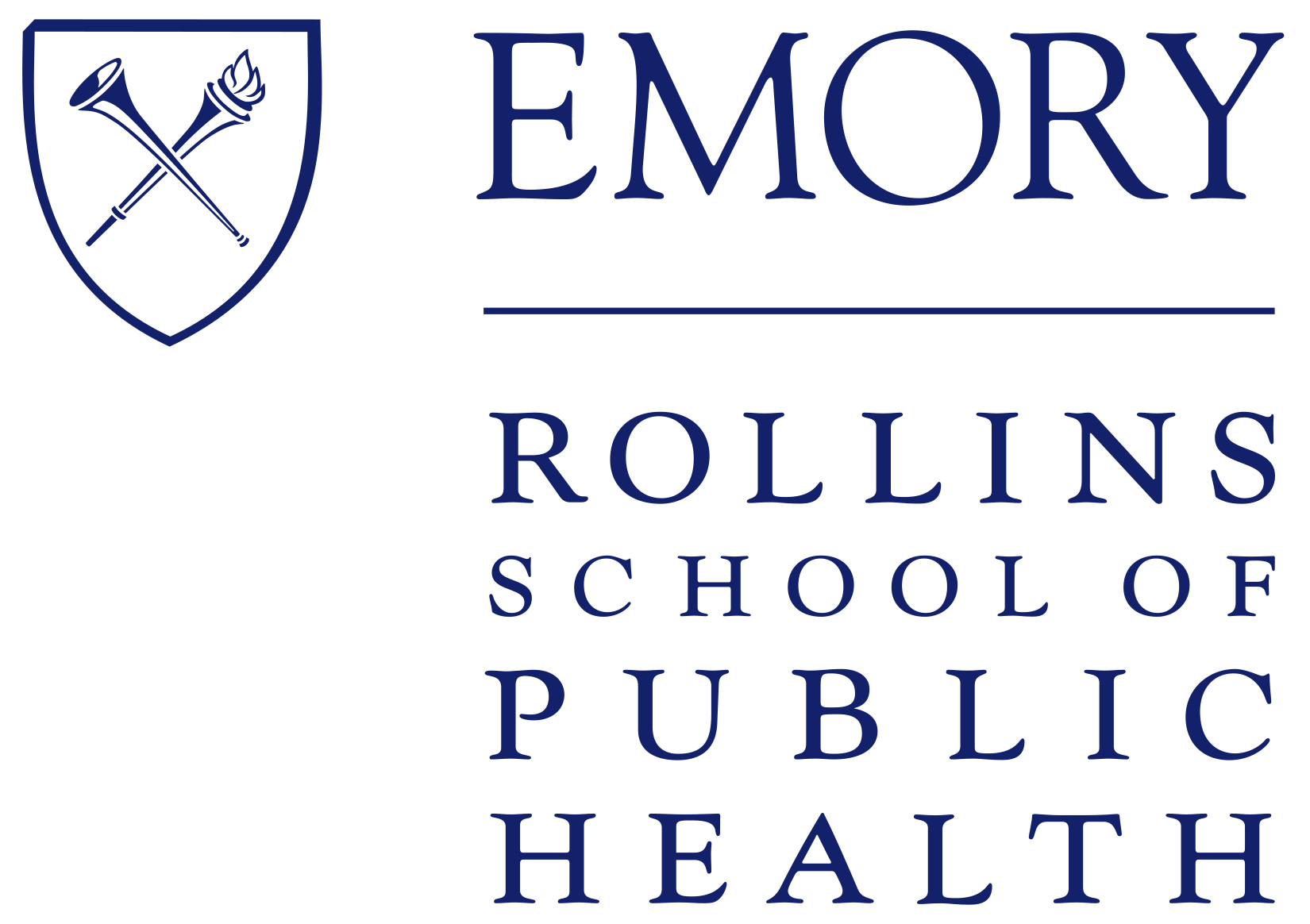 The Rollins School of Public Health at Emory University is ranked 3rd among all accredited schools and programs of public health in the United States. Located in Atlanta, known as the “Public Health Capital of the World,” the school draws strength from several unique local resources. The U.S. Centers for Disease Control and Prevention provides many of the school’s nearly 200 adjunct faculty. The Carter Center is involved in international health intervention programs that provide student practicum opportunities. Students can learn from both in the classroom and as interns in the field. Students join the Rollins community from all 50 states and from more than 40 foreign countries to contribute to the school and apply knowledge to promote health and prevent disease in human populations.
The Rollins School of Public Health at Emory University is ranked 3rd among all accredited schools and programs of public health in the United States. Located in Atlanta, known as the “Public Health Capital of the World,” the school draws strength from several unique local resources. The U.S. Centers for Disease Control and Prevention provides many of the school’s nearly 200 adjunct faculty. The Carter Center is involved in international health intervention programs that provide student practicum opportunities. Students can learn from both in the classroom and as interns in the field. Students join the Rollins community from all 50 states and from more than 40 foreign countries to contribute to the school and apply knowledge to promote health and prevent disease in human populations.
■ About The Faculty of Public Health at Mahidol University
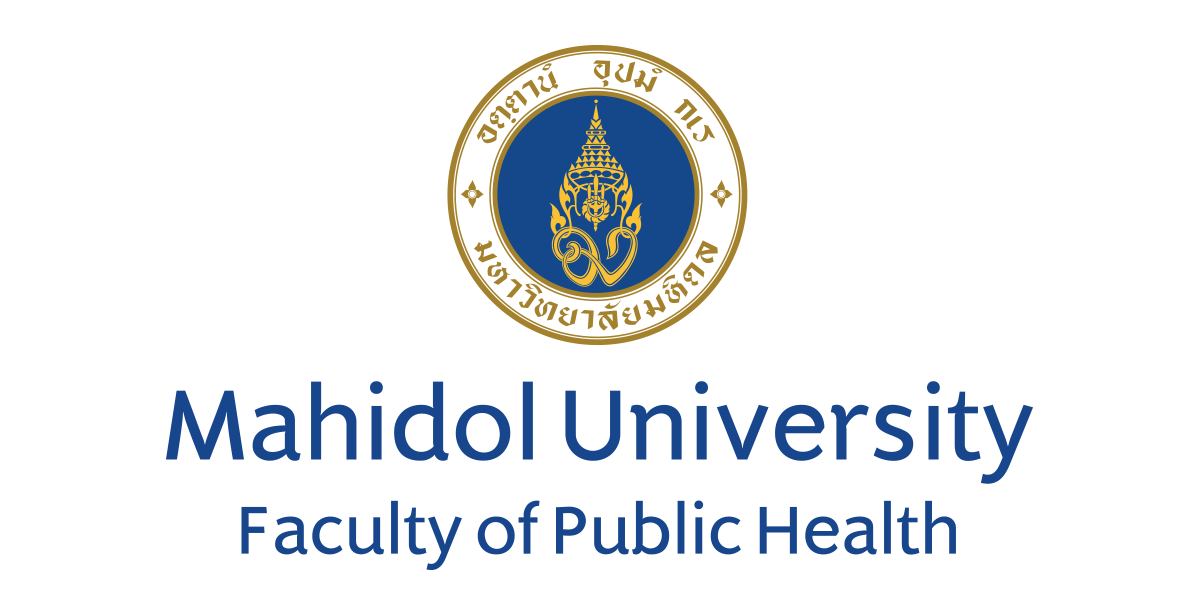 The Faculty of Public Health at Mahidol University, established in 1948 is the first public health academic institution in Thailand. At present, the Faculty of Public Health produces approximately 1,400 graduates in several majors from the Bachelor, Masters, and Doctoral levels. The faculty plays an integral role as an academic leader in the Asia-Pacific region, contributing to the development of the country on academic management, training, as well as academic service to Asia-Pacific countries. Since 1976, the faculty has been running the Master of Public Health – International Program, with over 1250 graduates from 42 different countries.
The Faculty of Public Health at Mahidol University, established in 1948 is the first public health academic institution in Thailand. At present, the Faculty of Public Health produces approximately 1,400 graduates in several majors from the Bachelor, Masters, and Doctoral levels. The faculty plays an integral role as an academic leader in the Asia-Pacific region, contributing to the development of the country on academic management, training, as well as academic service to Asia-Pacific countries. Since 1976, the faculty has been running the Master of Public Health – International Program, with over 1250 graduates from 42 different countries.
This project is supported by The Japan Foundation.
Top Research & Recommendations Posts
- [Policy Recommendations] The Path to a Sustainable Healthcare System: Three Key Objectives for Public Deliberation (January 22, 2026)
- [Research Report] The 2025 Public Opinion Survey on Healthcare in Japan (March 17, 2025)
- [Research Report] Perceptions, Knowledge, Actions and Perspectives of Healthcare Organizations in Japan in Relation to Climate Change and Health: A Cross-Sectional Study (November 13, 2025)
- [Policy Recommendations] Reshaping Japan’s Immunization Policy for Life Course Coverage and Vaccine Equity: Challenges and Prospects for an Era of Prevention and Health Promotion (April 25, 2025)
- [Research Report] The 2023 Public Opinion Survey on Satisfaction in Healthcare in Japan and Healthcare Applications of Generative AI (January 11, 2024)
- [Research Report] AMR Policy Update #4: Cancer Care and AMR (Part 1)
- [Public Comment Submission] “Assessment Report on Climate Change Impacts in Japan (Draft Overview)” (December 24, 2025)
- [Policy Recommendations] Developing a National Health and Climate Strategy for Japan (June 26, 2024)
- [Research Report] The Public Opinion Survey on Child-Rearing in Modern Japan (Final Report) (March 4, 2022)
- [Research Report] Survey of Japanese Physicians Regarding Climate Change and Health (December 3, 2023)
Featured Posts
-
2026-01-09
[Registration Open] (Hybrid Format) Dementia Project FY2025 Initiative Concluding Symposium “The Future of Dementia Policy Surrounding Families and Others Who Care for People with Dementia” (March 9, 2026)
![[Registration Open] (Hybrid Format) Dementia Project FY2025 Initiative Concluding Symposium “The Future of Dementia Policy Surrounding Families and Others Who Care for People with Dementia” (March 9, 2026)](https://hgpi.org/en/wp-content/uploads/sites/2/dementia-20260309-top.png)
-
2026-02-05
[Registration Open] (Webinar) The 141st HGPI Seminar “Current Status and Future Prospects of Korea’s Obesity Policy: Voices of People with Lived Experience in Policy Promotion” (March 3, 2026)
![[Registration Open] (Webinar) The 141st HGPI Seminar “Current Status and Future Prospects of Korea’s Obesity Policy: Voices of People with Lived Experience in Policy Promotion” (March 3, 2026)](https://hgpi.org/en/wp-content/uploads/sites/2/hs141-top-1.png)
-
2026-02-06
[Research Report] AMR Policy Update #5: Cancer Care and AMR (Part 2)
![[Research Report] AMR Policy Update #5: Cancer Care and AMR (Part 2)](https://hgpi.org/en/wp-content/uploads/sites/2/HGPI_20260204_AMR-Policy-Update-5.png)




